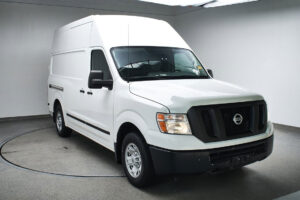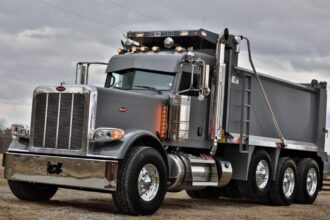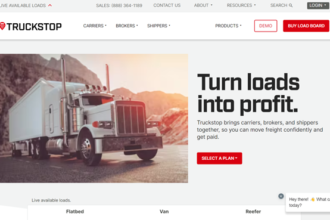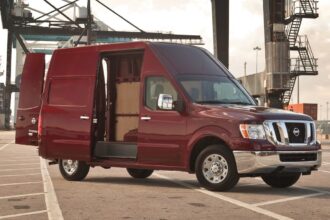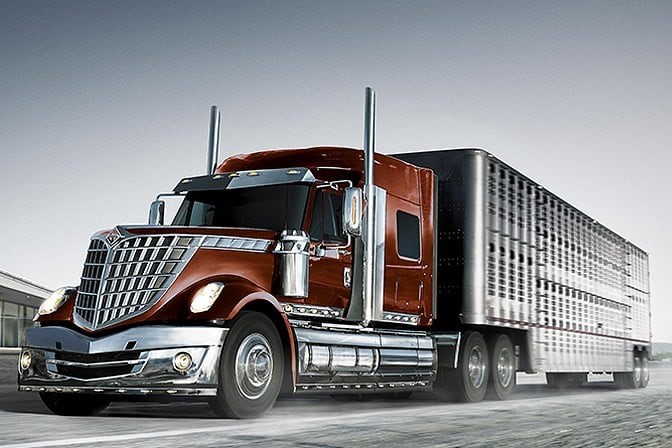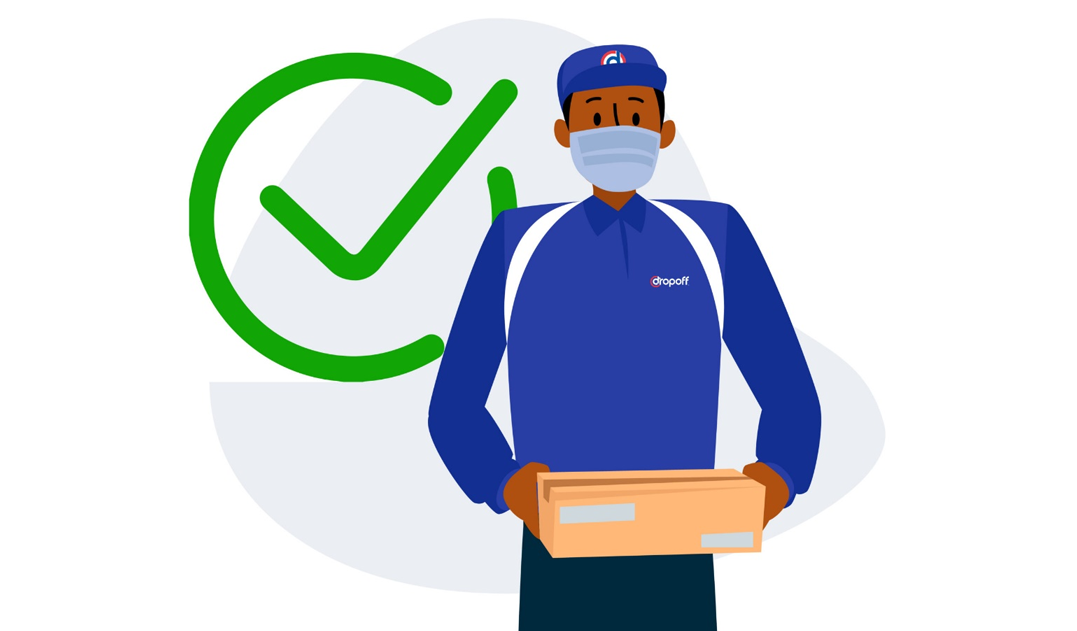Table of Contents
Leasing a cargo van for business purposes presents an effective strategy for managing transportation needs without the substantial upfront cost of purchasing. This approach not only offers flexibility in terms of vehicle selection and budgeting but also allows businesses to access the latest models equipped with advanced features and better fuel efficiency.
Carefully navigating the leasing process requires a thorough understanding of the terms, including mileage limits, wear and tear policies, and lease duration, to ensure the deal aligns with operational requirements and financial constraints. Engaging in this decision-making journey empowers businesses to optimize their logistics and delivery services, enhancing operational efficiency and customer satisfaction.
Embark on this enlightening exploration of cargo van leasing and empower your business to grow and thrive.
How to Lease a Cargo Van for Business:
1. Determine Your Business Needs
2. Research Van Leasing Companies
3. Compare Lease Options
4. Select the Right Cargo Van
5. Negotiate the Lease Agreement
6. Sign the Lease Agreement
7. Maintain and Insure the Van
1. Determine Your Business Needs
To know how to lease a cargo van for business, determine your business needs.
To lease a cargo van for your business, it is crucial to assess your specific requirements in detail. Consider the following factors:
Cargo Space
Evaluate the amount of cargo space you need to transport your goods efficiently. Determine the dimensions and capacity required to accommodate your products.
Payload Capacity
Calculate the weight of your goods to ensure the cargo van can handle the load without compromising performance or safety. Keep in mind that the payload capacity includes the weight of the cargo, passengers, and any additional equipment or tools.
Frequency of Use
Consider how frequently you will be using the cargo van. This will help determine whether a long-term lease or a short-term rental is more suitable for your business needs.
Size and Volume of Goods
Analyze the size and volume of the goods you will be transporting regularly. This information will assist in selecting a cargo van with adequate space and dimensions to accommodate your products effectively.
2. Research Van Leasing Companies
To understand how to lease cargo van for business, research van leasing companies.
When leasing a cargo van for your business, it is essential to research reputable van leasing companies that offer cargo van rentals specifically for business use. Consider the following factors during your research:
Lease Terms
Evaluate the lease terms offered by different companies. Look for flexibility in lease duration, such as short-term or long-term options, to align with your business needs.
Pricing
Compare the pricing structures of various leasing companies. Consider factors such as monthly lease payments, upfront costs, and any additional fees or charges associated with the lease.
Lease-End Options
Explore the lease-end options provided by each company. Some companies may offer the option to purchase the van at the end of the lease term, while others may provide the flexibility to return the van without any obligations.
During your research, you may come across several reputable van leasing companies. For example, Enterprise Truck Rental offers well-maintained cargo vans with various payload capacities and bulkhead options. Ford’s Commercial Lease program provides flexible terms and residual options based on your business requirements. Merchants Fleet offers flexible van fleet leasing terms ranging from 3 months to 7 years, with tax advantages under the Section 179 tax deduction. Ryder and Commercial Vehicle Contracts are also notable companies to consider for cargo van leasing.
3. Compare Lease Options
To grasp how to lease a cargo van for business, compare lease options.
When leasing a cargo van for your business, it is important to evaluate different lease options and understand the terms and conditions associated with each. Consider the following details while comparing lease options:
Types of Leases
Familiarize yourself with different types of leases, such as open-end leases and operating leases. An open-end lease allows you to purchase the van at the end of the lease term, while an operating lease allows you to use the van for a specific period without the option to purchase it.
Terms and Conditions
Thoroughly review the terms and conditions of the lease agreement. Pay attention to factors such as mileage allowances, which determine the number of miles you can drive the van without incurring additional charges. Understand the maintenance responsibilities, including who is responsible for routine servicing and repairs. Additionally, be aware of insurance requirements and whether the leasing company provides any insurance coverage.
Tax Benefits
Take advantage of tax benefits available for leasing a cargo van. For example, the Section 179 tax deduction allows businesses to deduct up to 100% of lease payments in the first year, providing significant tax savings. Consult with a tax professional to understand how you can maximize tax benefits through leasing.
>>>PRO TIPS: Is Cargo Van Good Business?
4. Select the Right Cargo Van
To discover how to lease cargo van for business, select the right cargo van.
When choosing a cargo van for your business, it is important to select one that meets your specific requirements in terms of size, payload capacity, and features. Consider the following details to make an informed decision:
Cargo Space
Assess the amount of cargo space you need to transport your goods effectively. Consider the dimensions and capacity required to accommodate your products. Keep in mind that different cargo vans offer varying cargo space options.
Payload Capacity
Evaluate the payload capacity of the cargo van. This refers to the maximum weight the van can carry, including the cargo, passengers, and any additional equipment. Ensure that the payload capacity of the van is sufficient for your business needs.
Additional Features
Consider additional features that may be beneficial for your business. For example, some cargo vans offer bulkhead options, which provide a barrier between the cargo area and the driver’s compartment, enhancing safety and organization. Evaluate seating capacity if you require additional passenger space. Additionally, explore commercial upfit capabilities, such as racks, cabinets, and shelves, that can enhance the functionality of the cargo van.
5. Negotiate the Lease Agreement
To know how to lease a cargo van for business, negotiate the lease agreement.
After identifying a van leasing company that meets your requirements, it’s time to negotiate the lease agreement. Effective negotiation can help ensure that the lease terms align with your business needs and budget. Here are some tips to guide you through the negotiation process:
Contact the Leasing Company
Reach out to the van leasing company and express your interest in leasing a cargo van for your business. Initiate a conversation to discuss lease terms, pricing, and any additional services you may require. This initial contact sets the stage for further negotiations.
Discuss Lease Terms
Engage in a discussion about the lease terms. Pay attention to factors such as lease duration, monthly payments, and any potential fees or charges. Seek clarification on any terms that are unclear or require further explanation.
Pricing Negotiation
Negotiate the pricing to ensure it aligns with your budget. Consider factors such as the capitalized cost (the vehicle price), the residual value (estimated value at the end of the lease), and the money factor (interest rate). Aim to negotiate a lower capitalized cost and a higher residual value to reduce your monthly payments.
>>>GET SMARTER: 5 Best Cargo Van Business Loans for Bad or Fair Credit
6. Sign the Lease Agreement
To lease a cargo van for business, sign the lease agreement.
Before finalizing a cargo van lease for your business, it’s essential to meticulously review the lease agreement, focusing on key terms like lease duration, monthly payments, and mileage allowances. Seek clarification from the leasing company on any terms that are unclear to ensure a comprehensive understanding of your obligations and rights. Only sign the agreement when confident it meets your business needs, remembering to keep a copy for your records. This careful approach ensures you enter the lease fully informed, safeguarding your business interests throughout the duration of the agreement.
7. Maintain and Insure the Van
To understand how to lease a cargo van for business, maintain and insure the van.
As the lessee, maintaining the leased van and securing appropriate insurance coverage falls squarely on your shoulders. Ensure to follow the maintenance schedule outlined in the lease agreement, including regular servicing like oil changes and tire rotations, to avoid any penalties or charges for excess wear and tear.
You’re also responsible for obtaining comprehensive insurance coverage, as leasing companies typically require higher limits than state minimums, including liability, comprehensive, and collision coverage. Stay diligent in keeping maintenance records and meeting insurance requirements to safeguard your business interests and maintain compliance with the lease terms. This proactive approach ensures the van remains in good condition throughout the lease period, protecting your investment and avoiding unforeseen expenses.
Recap
Leasing a cargo van for your business involves several key steps. First, evaluate different lease options such as open-end and operating leases, considering factors like mileage allowances and maintenance responsibilities. Next, select a van that meets your business requirements in terms of size, payload capacity, and additional features.
Negotiate the lease agreement, ensuring it aligns with your needs and budget. Finally, carefully review and sign the lease agreement, and fulfill your responsibilities by maintaining the van and obtaining the necessary insurance coverage.



